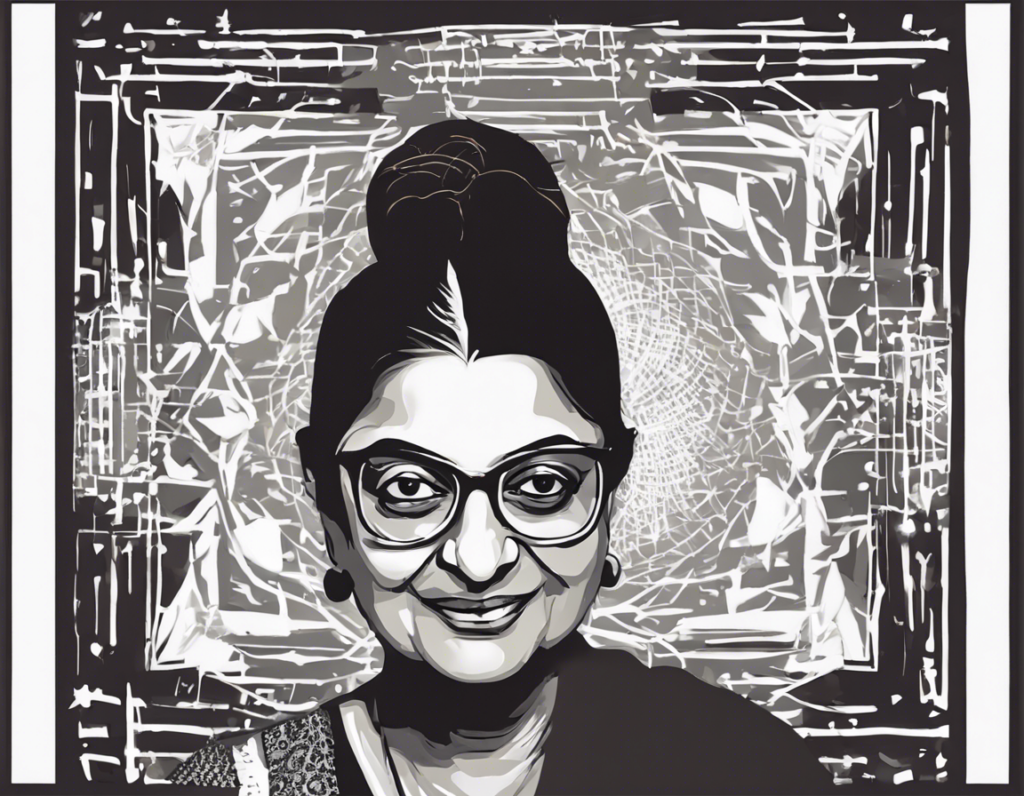Introduction
Gayatri Chakravorty Spivak is a prominent literary theorist, philosopher, and feminist critic. Her works have had a significant impact on the fields of postcolonial studies, feminism, and deconstruction. Spivak is particularly renowned for her analysis of power structures, representation, and the voices of marginalized groups. This blog post will delve into some of her influential works and their impact, especially in the academic setting of Jawaharlal Nehru University (JNU).
Early Life and Education
Born in Calcutta, India, in 1942, Gayatri Chakravorty Spivak pursued her education in the United States, earning a Master’s degree from Cornell University and a PhD from the University of California, Berkeley. Her academic journey laid the foundation for her groundbreaking contributions to postcolonial theory and literary criticism.
Postcolonial Theory and “Can the Subaltern Speak?”
One of Spivak’s most well-known essays is “Can the Subaltern Speak?” This seminal work explores the representation of marginalized voices within colonial discourse. Spivak interrogates the challenges faced by subaltern groups, particularly women, in making their voices heard within dominant power structures. The essay has become a key text in postcolonial studies, prompting scholars to consider issues of agency, representation, and power dynamics.
Feminist Critique and “A Critique of Postcolonial Reason”
In “A Critique of Postcolonial Reason,” Spivak extends her analysis to critique Western feminist perspectives on the Global South. She highlights the complexities of gender, class, and race within postcolonial contexts, challenging simplistic narratives of liberation and empowerment. Spivak’s nuanced approach to feminist theory has shaped discussions on intersectionality and solidarity across diverse cultural and political landscapes.
Literary Deconstruction and “The Death of the Author”
Drawing from the works of Jacques Derrida and Roland Barthes, Spivak engages with literary deconstruction in her essay “The Death of the Author.” She unpacks the ways in which texts are constructed and interpreted, questioning notions of authorial intent and reader response. Spivak’s intervention in literary theory has opened up new avenues for understanding texts as sites of contestation and multiple meanings.
Impact at JNU
Gayatri Chakravorty Spivak’s works have left a lasting impact on academic discourse at Jawaharlal Nehru University. Her critical insights into postcolonialism, feminism, and deconstruction have resonated with students and scholars across various disciplines. At JNU, Spivak’s ideas have sparked vibrant debates and inspired new avenues of research, particularly in the fields of literature, philosophy, and social sciences.
Challenges and Controversies
Despite her influential contributions, Spivak’s work has not been without criticism. Some scholars have questioned the accessibility and perceived elitism of her writing style, arguing that it can be exclusionary to certain readers. Additionally, debates have emerged around the applicability of her theories to specific cultural contexts, highlighting the need for nuanced and context-specific analyses.
Future Directions and Continuing Relevance
As academic discourses evolve and new challenges emerge, Gayatri Chakravorty Spivak’s works continue to offer valuable insights and provocations. Her emphasis on dismantling hierarchies of power, amplifying marginalized voices, and interrogating dominant narratives remains relevant in an increasingly globalized and interconnected world. Scholars and students at JNU and beyond are likely to engage with Spivak’s ideas for years to come, further enriching intellectual dialogues and fostering critical inquiry.
Conclusion
Gayatri Chakravorty Spivak’s contributions to postcolonial theory, feminism, and literary criticism have established her as a preeminent voice in contemporary academic scholarship. Her works challenge conventional wisdom, disrupt entrenched power structures, and advocate for the recognition of marginalized voices. At Jawaharlal Nehru University, Spivak’s ideas have found a receptive audience, shaping intellectual debates and inspiring generations of students and scholars. As her work continues to resonate across disciplines and geographies, Spivak’s legacy as a visionary thinker and advocate for social justice endures.
FAQs (Frequently Asked Questions)
1. Who is Gayatri Chakravorty Spivak?
Gayatri Chakravorty Spivak is an Indian-American literary theorist, philosopher, and feminist critic known for her contributions to postcolonial theory, feminism, and deconstruction.
2. What is “Can the Subaltern Speak?”
“Can the Subaltern Speak?” is a seminal essay by Spivak that explores the challenges faced by marginalized groups, particularly women, in making their voices heard within dominant power structures.
3. Why is Spivak’s work significant at JNU?
Spivak’s critical insights into postcolonialism, feminism, and deconstruction have had a profound impact on academic discourse at JNU, inspiring debates and shaping research in various disciplines.
4. What are some criticisms of Spivak’s work?
Critics have pointed to the perceived elitism of Spivak’s writing style and questioned the applicability of her theories to specific cultural contexts, underscoring the need for nuanced and context-specific analyses.
5. How has Spivak’s work influenced future directions in academia?
Spivak’s emphasis on dismantling power structures, amplifying marginalized voices, and interrogating dominant narratives continues to resonate in academic scholarship, shaping critical inquiry and fostering intellectual dialogues.
